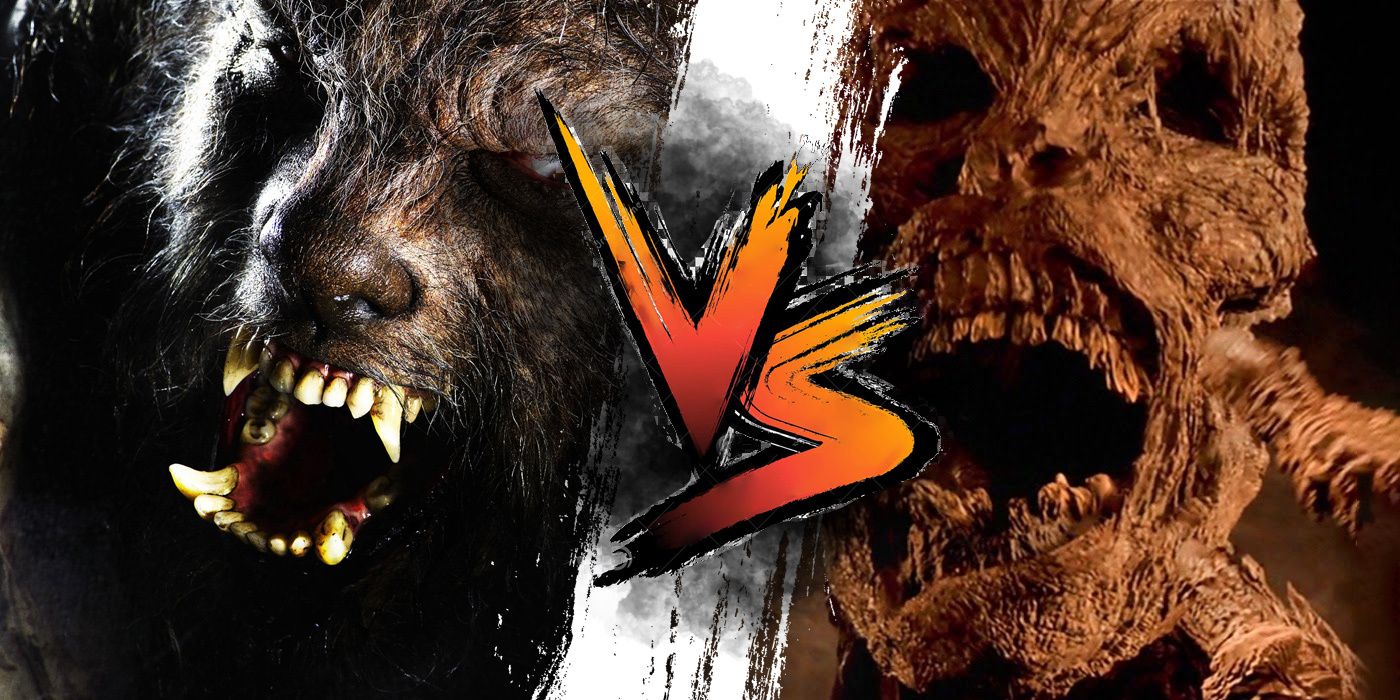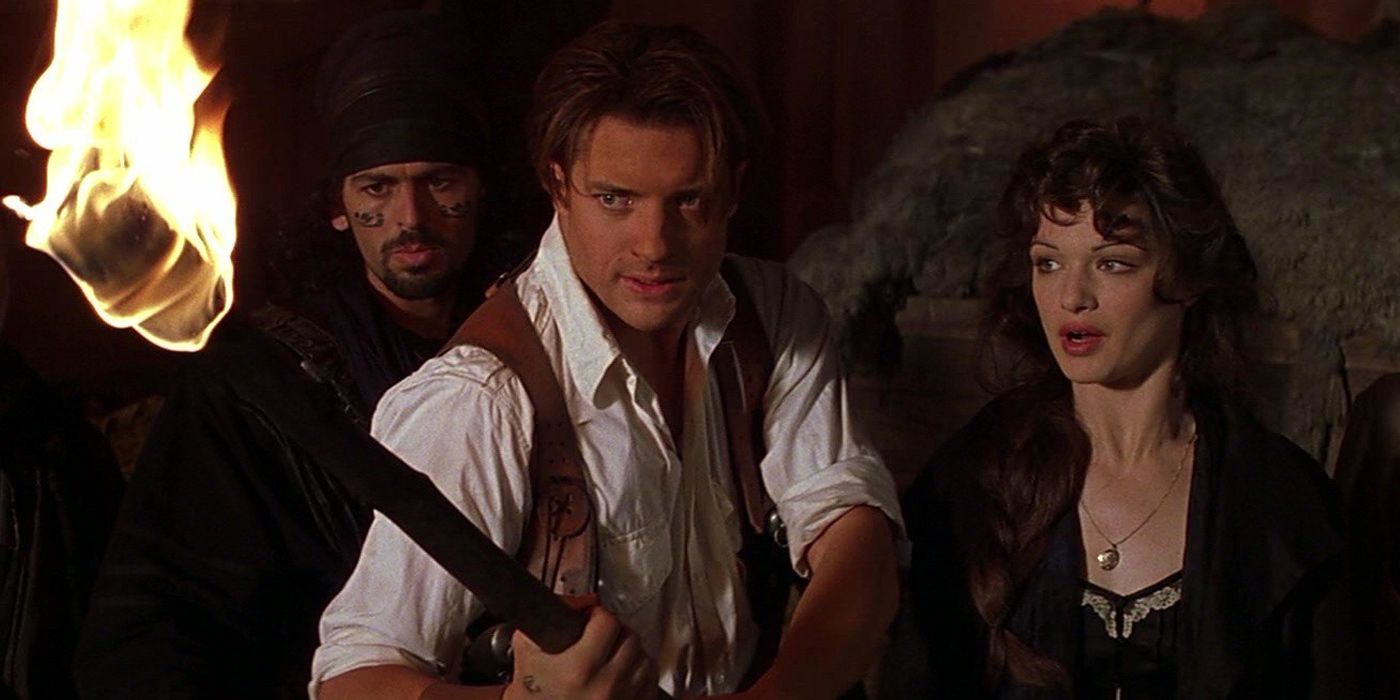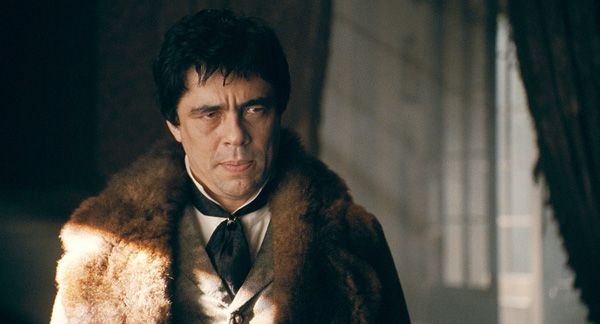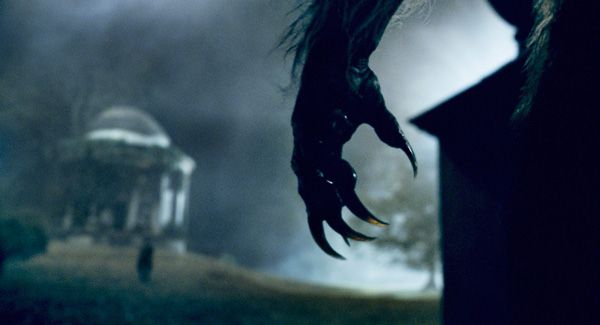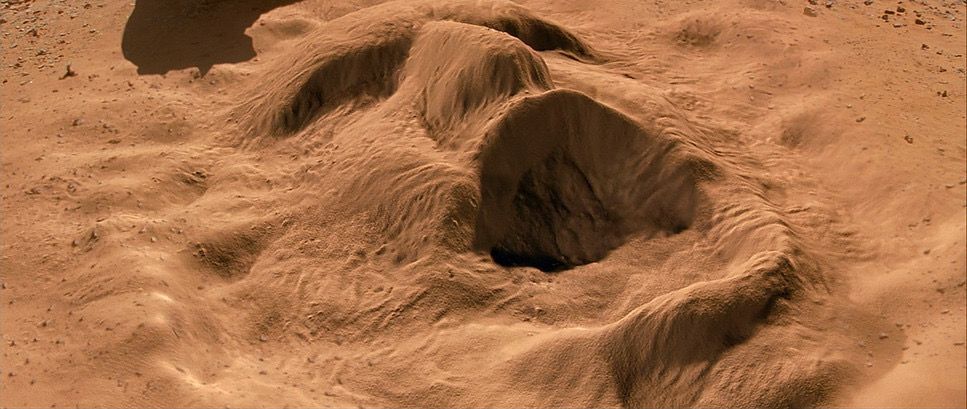If you’ve ever thought the glut of remakes, reboots, and “reimaginings” of recent years was in your head, rest at ease: the data shows, it’s a real trend. Just how much this bothers you will vary from person to person; some of us embrace the trend, while others would welcome a 15-year moratorium on any title and property that’s already been made into a film or TV show getting another one. And of course, your relationship to the original film can affect how you feel about any remake.
To offer one example: I’ve had quite a strong attachment to the Universal Monsters pictures since childhood. Upon becoming exposed to these movies, I became aware that the 1999 Stephen Sommers film The Mummy was meant to be a remake of the 1932 Boris Karloff vehicle of the same name. Despite my dad and my brothers all having watched and enjoyed The Mummy and its sequel, I managed to avoid seeing it in its entirety. But I did see Van Helsing, and that was enough for me to never want to give Sommers another chance with classic horror again. The unending hokey action-flick one-liners, the over-produced and interminably long action set-pieces, the breakneck pacing, the excess shown in every possible use of unconvincing CGI: everything about Van Helsing was a far cry from the atmospheric, practical, and varied horror films it was meant to celebrate. Nothing I’d seen of The Mummy indicated it would be any more respectful or pleasant a watch. True, I couldn’t know that without giving it a chance; true as well, I only found the Karloff Mummy average at best; but it was the principle that mattered.
On the other hand, when a remake of The Wolf Man (1941) was due to arrive in theaters in 2010, I was at least mildly happy to go see it. Rick Baker was providing practical werewolf make-up, Anthony Hopkins was taking over as Sir John Talbot (father of the title character) from Claude Rains, and Danny Elfman was set to provide the score. The trailers suggested a suitable Gothic setting and the glimpses of Benicio del Toro in make-up were wonderful. This, I thought, seems like a proper tribute to Universal’s Monsters. There were the news reports that original director Mark Romanek bailed on the project weeks before filming, and a to-do about the score (Elfman was supposed to have been replaced, then had his work restored but rearranged by other composers). Still, compared to that Stephen Sommers guy, this had to be a better approach to reviving the Universal Monsters. Right?
I fought a long battle as a teen and a college kid to maintain that The Mummy was an undignified action flick that did wrong by Boris Karloff. The list of people I knew who loved it grew longer, but I held out. Finally, for reasons that escape me, I gave in and watched it beginning to end. When it was over, my thoughts didn’t shift immediately. But slowly, grudgingly, I conceded that The Mummy was an utter delight of a kind increasingly rare in mainstream action-adventure movies.
2010’s The Wolfman, on the other hand, disappointed in the theater and has done so ever since. Was Universal president Ron Meyer right to call it “one of the worst movies we ever made?” Hardly (and his throwing del Toro and director Joe Johnston under the bus was pretty low too). But it’s not good.
Neither of these films figures into Universal’s current plans for their horror features, but they’re more fascinating to me as efforts to recreate the horror magic of old. At a first glance, they seemed to take the same approach: respectably budgeted period pieces retelling the stories of the original films, without the ulterior motive of launching a cinematic universe. But there are crucial differences in the details, and those are what make one a success and the other a disappointment.
It's only a surface-level impression that Sommers’s Mummy is a retelling of Boris Karloff’s. There’s no Rick O’ Connell in the original, no Carnahan family, no Medjai, no comic relief henchman. Karloff’s Imhotep is a tragic lover of limited magical means to try and bridge eons with the reincarnation of his lost love Anck-es-en-Amon, the heart and driving force of his film. The Imhotep of Sommers’s movie (Arnold Vosloo) is a more overtly villainous and megalomaniacal figure, the obstacle for Brendan Fraser as O’ Connell and Rachel Weisz as Evelyn Carnahan to overcome. The 1999 Mummy isn’t a retelling at all, but a remake in a purer sense of the word: individual elements of the original film (the name Imhotep, a 1920s setting, having a romance of some kind) are taken, set in a new context, and used to make a completely different story.
And that different story isn’t a horror film. I’d hesitate to say that the supernatural elements of Sommers’s Mummy even meet the definition of horror; none of them are played for straight menace in the way that, say, the black magic of Indiana Jones and the Temple of Doom was. The Mummy is an adventure film in as classic a sense as you could want: period setting, ancient temples, highly exaggerated and fantasized depictions of mythology and culture, and a steamy romance between the adventurer and adventuress. Such a shift in narrative demanded a certain tone, and Sommers delivered. Instead of the often-brooding mysticism of Karloff’s Mummy, the 1999 film is light, energetic, and loaded with comedy. Much of that comes through the characters, even nominal straight man Fraser and straight woman Weisz.
Many of the effects have not aged well (and a greater use of practical techniques would have complimented the period setting and granted the film’s visuals more charm). And Sommers’s attempt to replicate the tone of The Mummy in Van Helsing, with more rigidly serious lead characters and a far more bloated Gothic story, still seem a disaster to me. But as much as ten-year-old me would hate to see these words, 1999’s Mummy is a wonderfully fun movie in its own right, distinct from the Karloff film, and I daresay I’d rather watch it over Karloff. (Though if you want a classic horror-film mummy that’s better than either of them, I recommend Hammer’s 1959 The Mummy starring Peter Cushing and Christopher Lee.)
The Wolfman, by contrast, is still a horror film, and a remake in the way we usually think of them, as another version of the same basic story. At times, Andrew Kevin Walker’s screenplay seems to borrow liberally from Sleepy Hollow, which he also penned: protagonist comes to town to investigate murders, protagonist saddled with a dark past he can’t remember, a period setting when the original Wolf Man was contemporary to 1941. Still, the skeleton and some of the flesh of the plot belong to the Lon Chaney, Jr. vehicle. That film is, in my opinion, a much stronger entry in the Universal Monsters canon than Karloff’s Mummy; The Wolf Man is still among, if not the best werewolf movie ever made. This left The Wolfman with big shoes to fill in attempting a traditional remake. Del Toro and Baker, at least, were enthusiastic to try. They provide the film with its best elements. They couldn’t have been helped in their efforts by Baker’s sense (related while promoting his book Metamorphosis) that he, del Toro, and Hopkins were the only ones excited rather than embarrassed about making a movie called The Wolfman.
But the enthusiasm of key players can’t salvage a bad movie. I won’t say The Wolfman went wrong in attempting a straightforward remake of a classic (tempted though I am). Its fatal flaw is one of tone. Like Sommers’s Mummy, The Wolfman shifted its tone and mood compared to the original film. In the case of The Wolfman, the shift was deeper into the horror genre. The way the original Wolf Man opens, you might expect it to be a romantic comedy between Chaney Jr. and Evelyn Ankers, or a light drama about the father-son estrangement between Chaney and Rains with a romantic subplot. Chaney’s Larry Talbot is an affable, amorously clumsy blue-collar guy, while Rains’s Sir John is a respected and respectable English lord. There’s no ambiguity about what sort of movie The Wolfman is; the dark nights, full moons, and high tension hit you from the first frame. Del Toro’s Lawrence Talbot is a brooding, haunted actor with no amorous intent to start, while Hopkins’s Sir John clearly has a few screws loose before the story gets underway.
The problem with this change is that it leaves The Wolfman with nowhere to go. As the curse of the werewolf enters The Wolf Man, it marks a definite tonal shift. Receiving the werewolf’s bite and inheriting the curse himself gives Larry somewhere to go over the course of the film, from friendly lug to psychologically tormented damned soul. As his behavior becomes more unhinged, it affects Ankers and Rains as they struggle to cope with Larry’s changes when they don’t believe in werewolves. In short, the horror aspects of the film have a happy life to disrupt, and therefore register as horrific. With everyone already miserable and veiled in shadows at the start of The Wolfman, what impact can the werewolf’s curse really have on their lives? Things go from “sad and dangerous” to “slightly more sad and dangerous,” but that’s no great journey for characters – or an audience – to go on.
The lesson against disregarding any levity in a horror film isn’t just offered by The Wolf Man. The Bela Lugosi Dracula and Karloff’s Frankenstein had comic relief and normal human lives to be interrupted by monsters. Linda Blair and Heather Langenkamp have healthy, happy lives before the events of The Exorcist and the original Nightmare on Elm Street. Karloff’s Mummy was more romance than horror and offered its characters some happiness that Imhotep could threaten. Those elements were apparently enough for Stephen Sommers to construct an original story that could shed any overt horror for a whole new tone that worked. The Wolfman, running the opposite direction with the same story, tripped and fell.

